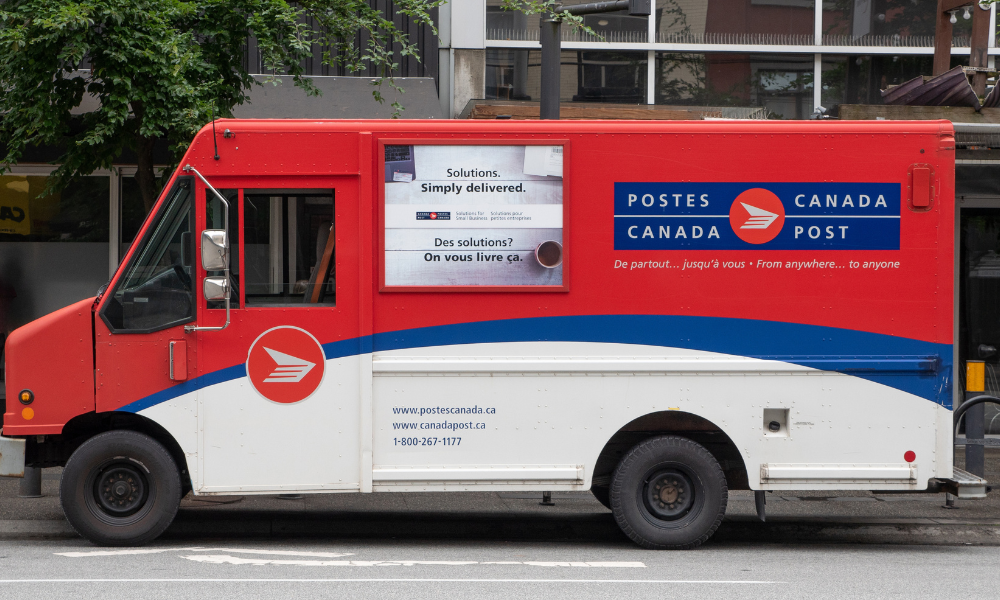Canada Post posts $1.3 billion operating loss in 2024 as strike and parcel slump hit revenue and volumes

Canada Post reported an operating loss of nearly $1.3bn in 2024, with a total pre-tax loss of $841m, as per its annual report release.
According to the corporation, this marks its seventh consecutive annual deficit, with cumulative losses surpassing $3.8bn since 2018.
As reported by Canada Post, the 32-day national strike launched by the Canadian Union of Postal Workers (CUPW) on November 15, 2024, contributed $208m to the company’s annual loss.
The strike, which occurred during the peak holiday season, caused a major decline in revenue and ongoing uncertainty into 2025, leading many customers to shift permanently to other carriers.
According to the press release, parcel revenue fell by $683m or 20.3 percent, with volumes declining by 56 million pieces, or 19.9 percent.
The corporation attributed the drop to both the labour disruption and competitive pressure from low-cost entrants.
Letter mail volumes continued to shrink, contributing to a $105m (5.3 percent) decline in Transaction Mail revenue.
Direct Marketing revenue dropped by $21m (3 percent) despite earlier gains, as businesses cancelled campaigns during the strike.
To stay afloat, the federal government announced up to $1.034bn in repayable funding in early 2025.
According to Canada Post, this financial support will ensure continued service until March 31, 2026, but will not address structural issues.
The company stated it requires urgent changes to its delivery model, regulatory framework, and collective agreements.
In response to these challenges, Canada Post resumed contract negotiations with CUPW and tabled a set of “final offers.”
These include an end to compulsory overtime, cost-of-living adjustments triggered at a lower inflation threshold, and signing bonuses of $1,000 for urban and $500 for rural and suburban workers.
The proposal also maintains a cumulative wage increase of nearly 14 percent over four years.
One key point of contention is the plan to add part-time weekend delivery positions.
The corporation also intends to launch “dynamic routing” at 10 processing facilities, where mail carriers’ routes would shift daily based on parcel volumes.
Canada Post cited a federally commissioned report from May 15 recommending dynamic routes and part-time weekend work with equal pay, benefits, and pension entitlements as full-time roles.
Commissioner William Kaplan, who authored the report, stated: “Canada Post is facing an existential crisis: It is effectively insolvent, or bankrupt.”
He added, “The world has changed, and both Canada Post and CUPW must evolve and adapt. Merely tinkering with the status quo is not an option.”
In an interview with The Globe and Mail, Montreal-based worker Lorraine Muller said employees are receiving a “bad deal” and that meaningful reform is necessary.
She pointed to ideas such as postal banking, already implemented in countries like France and the Czech Republic.
“Many of us have a deep, deep sense of public service and public good, so let us do our jobs. We're not robots yet,” she said to The Globe and Mail. “But stop driving away customers.”
According to McMaster University associate professor Stephanie Ross, the proposed part-time model may reduce full-time weekday job volumes.
Ross said some workers may welcome permanent part-time roles with full benefits over existing temp work but warned that tension could arise over job security and conversion paths to full-time.
The strike’s aftermath continues to weigh on operations.
According to Canada Post, parcel volumes in May 2025 were down 65 percent from a year earlier.
As reported by The Globe and Mail, e-commerce companies avoided Canada Post in favour of other couriers during the latest round of negotiations.
Parcel delivery firm Jet Worldwide, which saw surging demand during last year’s walkout, reported it was better prepared this time.
Owner Timothy Byrnes said customer service staff were “just overwhelmed” during the 2024 disruption.
Doug Ettinger, Canada Post’s CEO, stated that “the status quo has led us to the verge of financial insolvency and is not an option.”
He added that the need to respond to challenges and secure the country’s postal infrastructure has become more urgent than ever.
Sources: Canada Post, 2024 Annual Report; The Globe and Mail.



